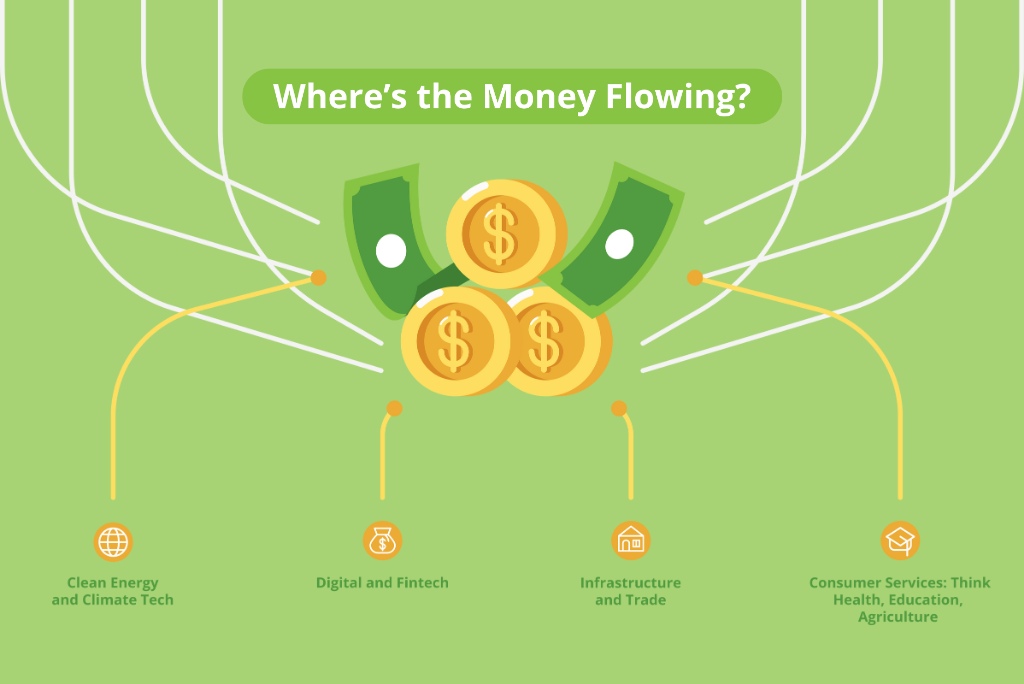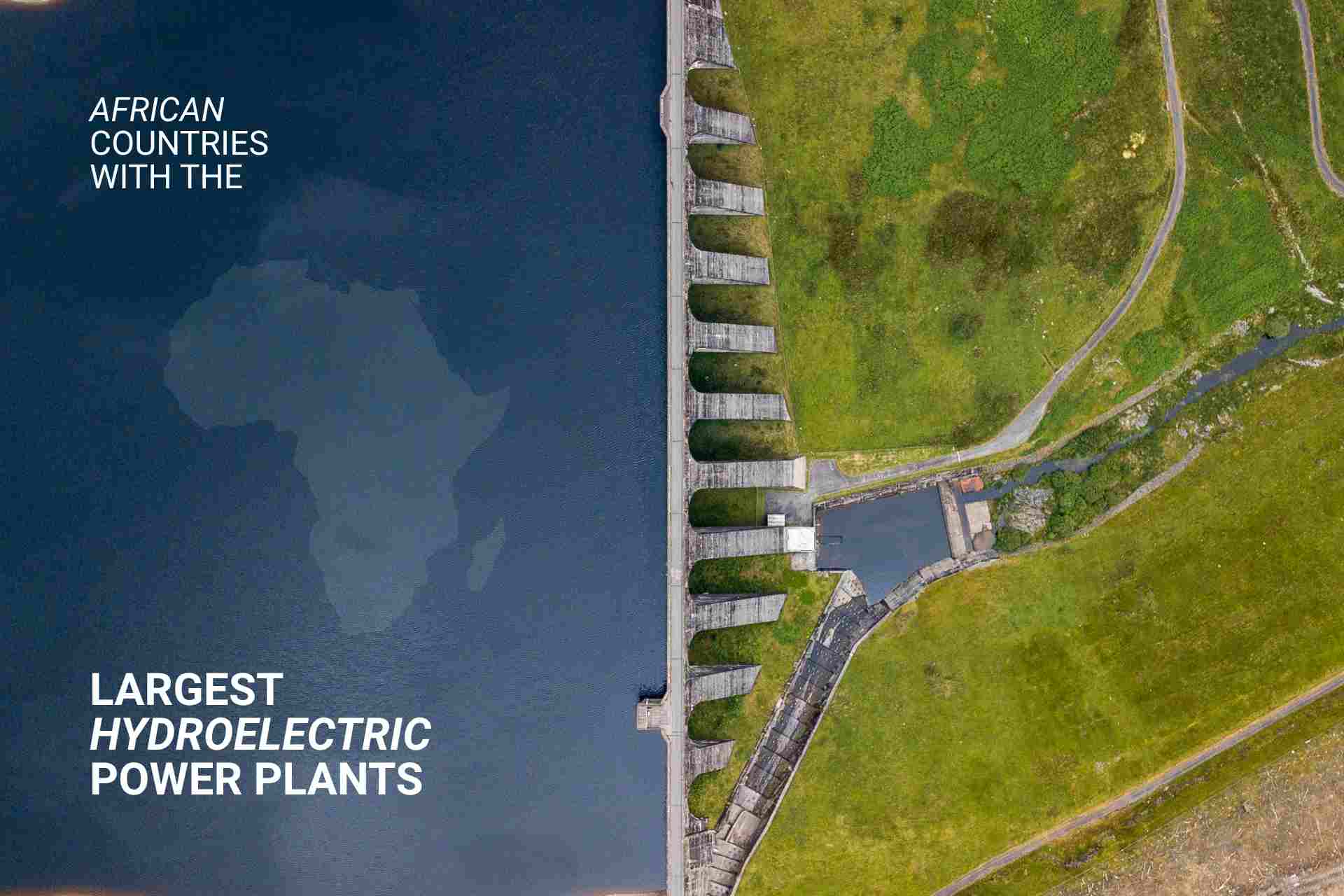
Africa’s in the middle of a massive shift. It’s happening quickly, and private equity? It’s sitting right in the thick of it. If you’re someone who’s ever looked into investing in Africa, or even just poked around wondering where the real economic stories are unfolding, you’re going to want to pay attention.
Africa’s economy is projected to grow faster than the global average over the next couple of years, around 3.8% in 2024 and 4.2% in 2025. But here’s the thing, it’s not just the numbers. It’s the people. A huge chunk of Africa’s population is young. In fact, in just five years, about half the continent will be made up of Generation Alpha, that’s 30% of the global total.
Think about what that means. More young people. More demand. More everything, tech, education, healthcare, clean energy. Private equity isn’t just watching this; it’s fueling it.
By the end of 2025, PE deal value across the continent is expected to hit around $900 million across roughly 90 deals. The average size? Just under $10 million. That might not sound massive compared to Wall Street numbers, but for Africa, it’s a strong pulse. And most private equity firms, about 54% of them actually believe Africa will outperform other emerging markets between now and 2030.

There are four big areas getting all the PE attention and for good reason.
Africa’s got the goods: sun, wind, and minerals. It’s becoming a serious player in the global clean energy transition. Climate finance on the continent jumped from $29.5 billion in 2019 to over $43 billion by 2022. That’s not a small change. PE firms are getting creative, mixing their money with public and blended financing to back solar farms, green hydrogen projects, and mineral processing hubs. This opens up a vast investment opportunity in Africa.
Mobile data use is exploding, up around 40% annually. But Africa still accounts for less than 1% of global data center capacity. That’s a massive gap, and investors know it. The IFC, for example, recently backed Raxio Group with $100 million to build regional data centers in countries like Uganda and Ethiopia. Fintech is blowing up. E-commerce too. Startups like Kobo360 (in logistics) and Amini (climate-tech in Kenya) are grabbing early funding, but there’s still a big need for scale-up capital.
Here’s a hard truth: Africa needs around $400 billion in infrastructure by 2030. Ports, roads, bridges, trade corridors, you name it. These things are essential to keep cities and trade moving. PE is stepping in, but slowly. In Nigeria, regulators are even nudging pension funds to invest more in private equity to help plug the infrastructure gap, which could balloon to nearly $900 billion by 2040. There is a huge business opportunity in Africa that is about to boom.
With a growing middle class, consumer spending could reach $2.1 trillion by 2025. Private equity is zoning in on agritech, medtech, edtech, and everyday consumer goods. There’s a lot of impact investment happening here too, especially in sustainable agriculture and climate-resilient sectors aligned with Africa’s big vision (Agenda 2063).
When it comes to countries attracting PE interest, it’s the usual suspects: South Africa, Nigeria, Kenya, Egypt, Morocco. South Africa and Kenya tend to top the list, mostly because they’ve got stronger infrastructure and a steadier flow of deals. But none of these markets are exactly smooth, there’s still plenty of red tape, and deal execution can be tricky.

Let’s be real. For all the investment opportunities, there are still some tough hurdles to clear.
Private equity in Africa isn’t broken, but it needs a rethink.

Here’s the thing, private equity isn’t just about returns. It’s about building. It’s factories. It’s schools. It’s data centers and clinics and clean water systems. It brings jobs. Taxes. Resilience. It’s infrastructure that sticks.
Is it easy? Absolutely not. But many investors, nearly 90% of LPs are still planning to hold or increase their African PE exposure over the next few years. That says something.
So, if you’re asking yourself how to invest in Africa or what sectors hold promise, don’t ignore private equity. It’s not some background player. It’s at the center of Africa’s economic transformation.
Bottom line?
Africa’s bursting with potential. The markets are young, growing, and full of demand.
Private equity can unlock serious impact here if it plays the long game, adapts to local contexts, and partners smartly.
Sure, the risks are there, regulatory headaches, currency swings, tricky exits. But the payoff? Bigger than just returns. We’re talking about real, lasting change.
Sources:
https://www.avca.africa/media/rondm4u2/avca24-22-apca-q1-2025_3.pdf
https://www.eavca.org/wp-content/uploads/2025/04/Q1-Private-Capital-Activity-Report-EAVCA-and-Stears-2025.pdf
https://www.africanexponent.com/top-10-private-equity-firms-in-africa-2025
https://fsdafrica.org/wp-content/uploads/2024/10/24-10-23-Landscape-of-Climate-Finance.pdf
https://en.wikipedia.org/wiki/Climate_finance_in_Africa
https://www.clydeco.com/en/insights/2025/06/africas-investment-puzzle-1
https://www.reuters.com/world/africa/world-bank-backs-africa-digital-data-push-with-100-million-raxio-deal-2025-04-03
https://www.reuters.com/sustainability/sustainable-finance-reporting/new-13-bln-energy-fund-transmission-links-across-southern-africa-2024-03-05
1. What are the key sectors that attract private equity investment in Africa?
Think of the essentials and the future. Private equity in Africa tends to flow into sectors where the demand is high and the potential for transformation is huge. That means clean energy (solar, wind, green hydrogen), digital infrastructure (data centers, fintech, e-commerce), core trade and transport infrastructure (ports, roads, logistics), and everyday consumer services like health, education, and agriculture. Basically, areas where investment doesn’t just generate returns, it actually moves the needle.
2. Why is private equity important for Africa’s developing markets?
Here’s the thing: traditional finance often plays it safe. But Africa needs patient capital, funds willing to bet on long-term growth, not just quick wins. That’s where private equity comes in. It steps in when others won’t. It funds scale, builds capacity, and helps companies go from “small but promising” to “serious players.” For developing markets, PE is more than just capital, it’s an engine for jobs, innovation, and market expansion.
3. How does private equity support entrepreneurship and innovation in Africa?
A lot of African startups have bold ideas, but they hit a wall when it comes to scaling. PE fills that gap. It doesn’t just write the check, it brings strategy, mentorship, and networks. Whether it’s a logistics startup trying to fix broken supply chains, or a medtech platform tackling healthcare access, private equity can give entrepreneurs the backing they need to grow smart, grow fast, and stay in the game.
4. What are the benefits of private equity for African businesses?
For many African businesses, PE can be a game-changer. It brings money, yes, but also guidance, better governance, and access to new markets. PE firms help businesses clean up their operations, streamline decision-making, and actually become investment-ready for the long haul. The result? Better resilience, more competitive edge, and a shot at becoming leaders in their space.
5. What are the risks associated with private equity investment in Africa?
Let’s not sugarcoat it, there are challenges. Regulatory red tape, political instability, currency swings, shallow exit options… It’s not always a smooth ride. Due diligence can be messy due to limited data and transparency. And sometimes it takes way longer than expected to see returns. But for investors who understand the terrain and are willing to play long-term, the payoff, both financial and social, can be worth the wait.

When Jensen Huang, CEO of NVIDIA, teamed up with Cassava Technologies to build what they and others describe as Africa’s “first AI factory,” it wasn’t just another tech announcement. It signals serious moves, for investment, for local capacity, for digital sovereignty. But what this really means, how it may benefit the investment opportunities in Africa, […]

Africa’s hydropower story isn’t just about big dams. It’s about politics, climate risk, export potential and where real investment opportunities in Africa lie. Below are some of Africa’s biggest hydropower assets, what they are, what they could be, and what that means for investors. Major Players Today Country Plant / Complex Installed / Nameplate Capacity* […]

Starlink moving from licence to live service in Chad is straightforward news, but the implications are anything but. Let’s break it down, what happened, how Chad compares to other African markets, what Starlink actually brings to the table, the security and regulatory trade-offs, and what investors and businesses should watch next. Licence vs activation Chad […]